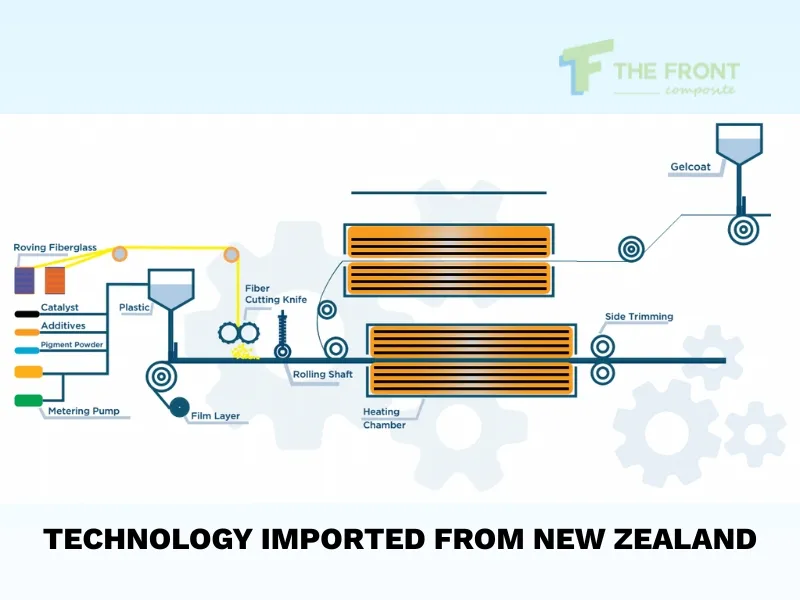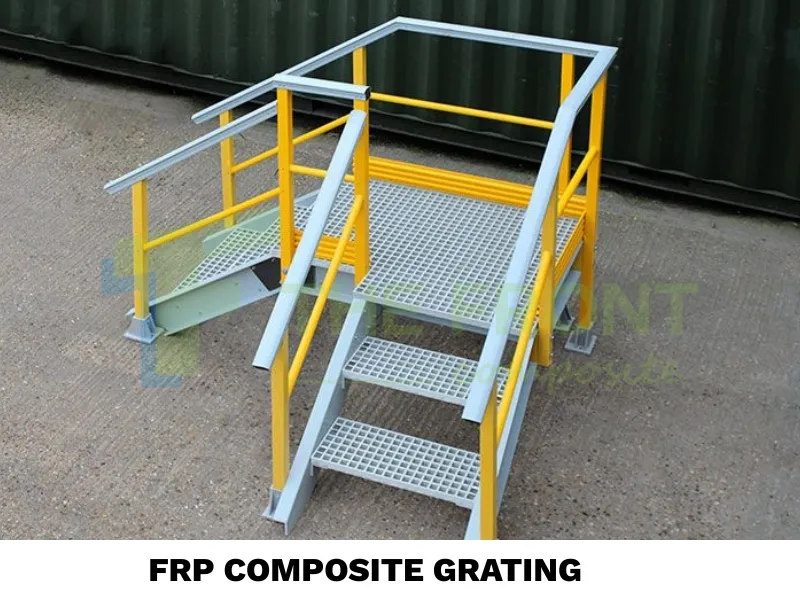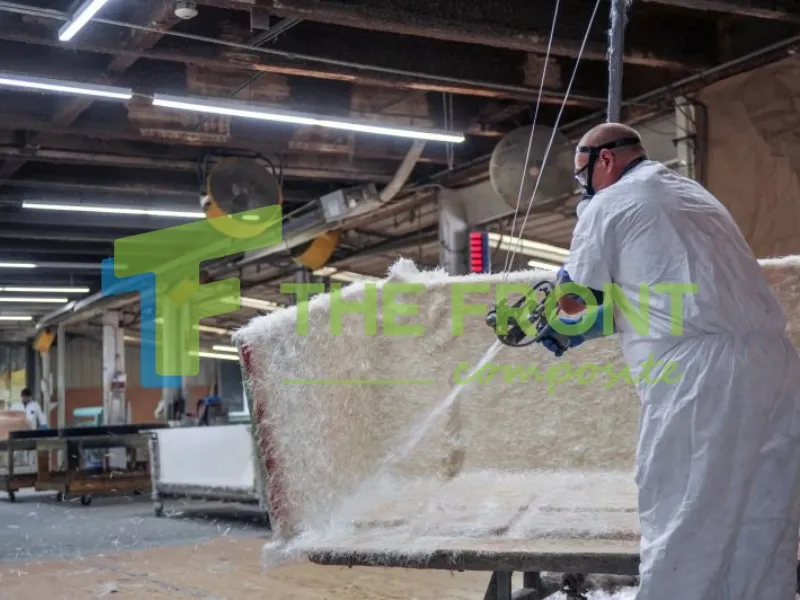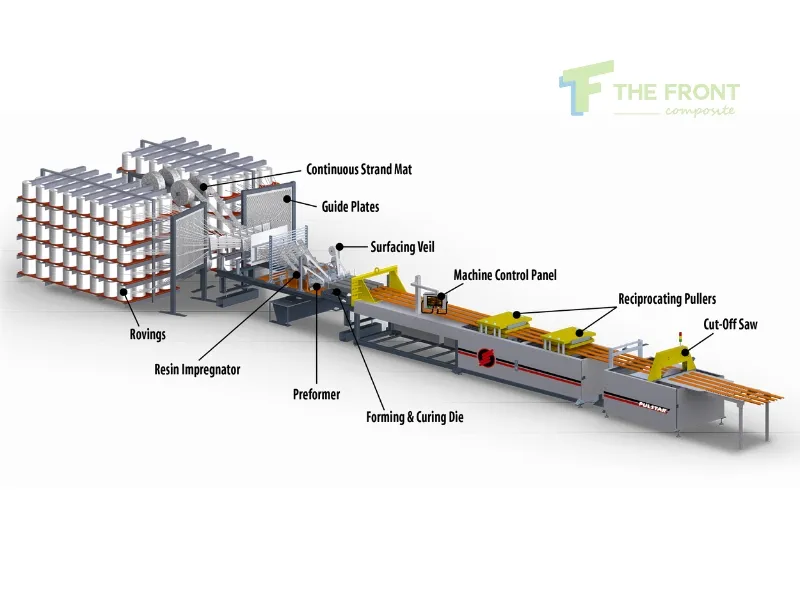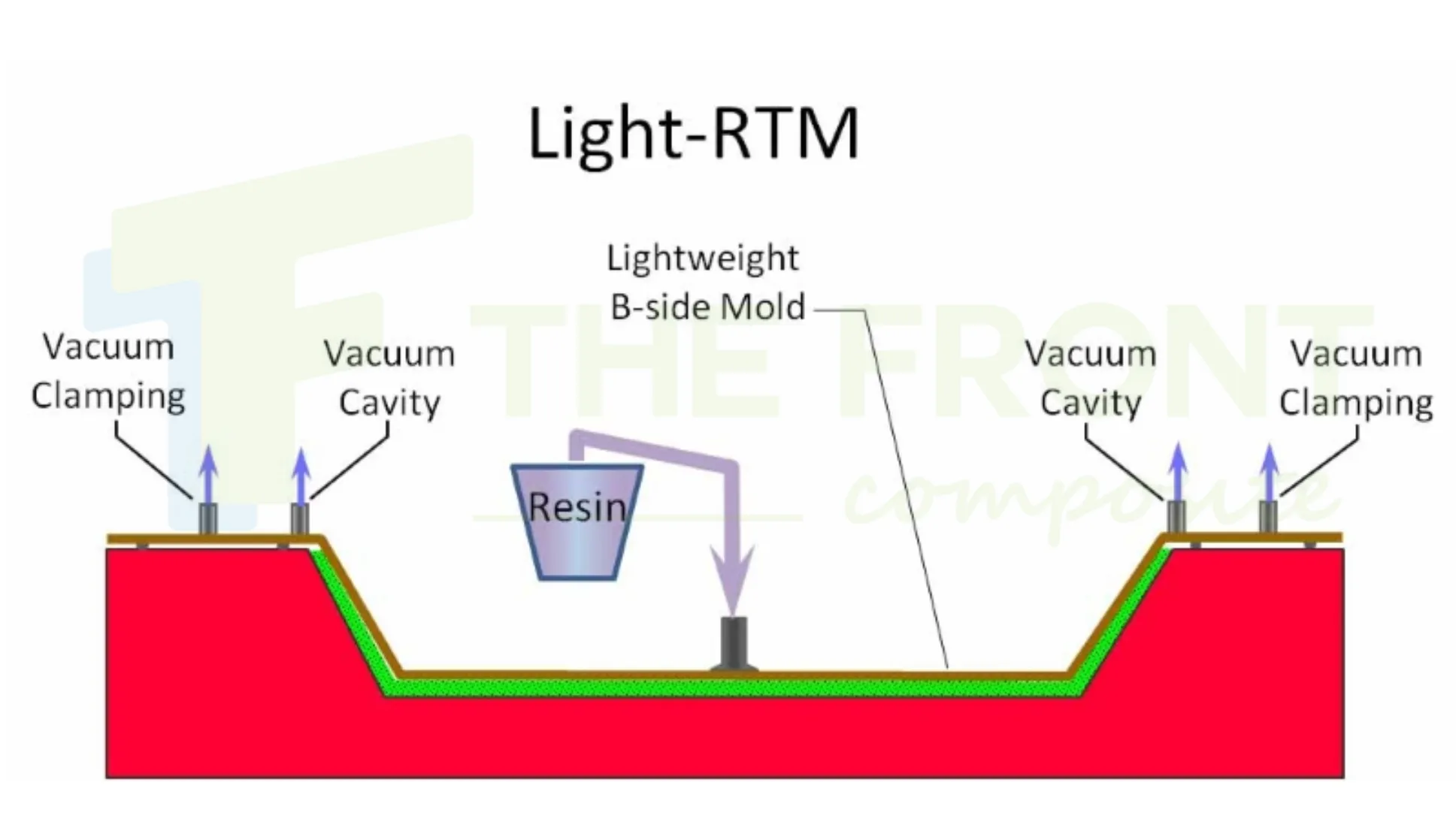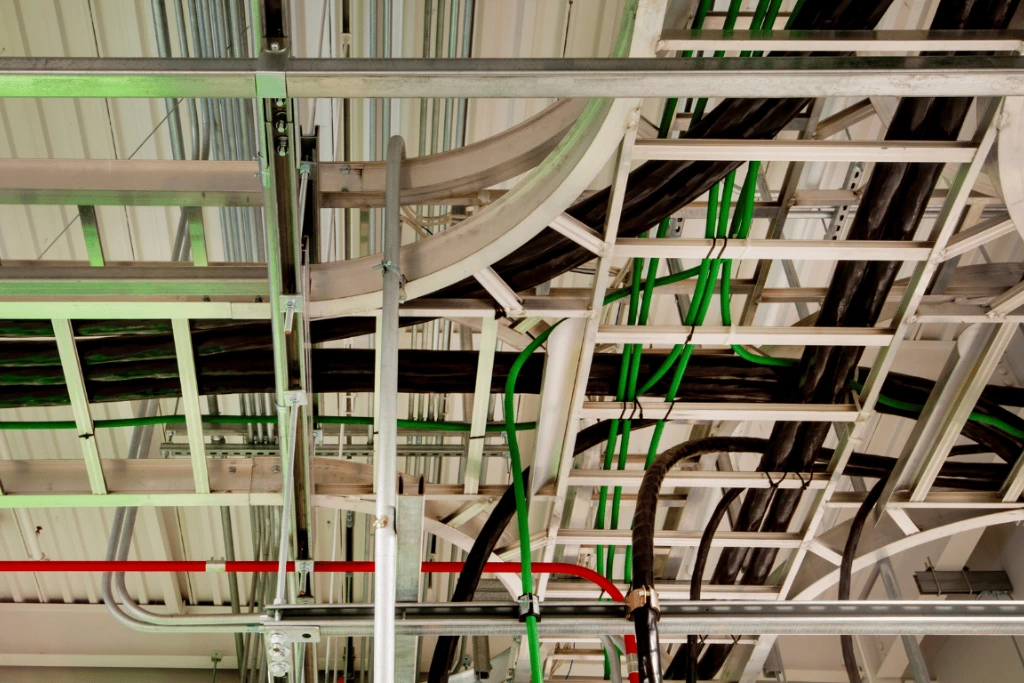In today’s industrial landscape, FRP tanks (Fiberglass-Reinforced Plastic tanks) have emerged as a game-changing solution for the storage of liquids and gases in various industries. These tanks are known for their durability, corrosion resistance, and adaptability, making them ideal for chemical processing and wastewater treatment sectors. In this article, we will delve into the key features, advantages, and applications of FRP tanks and explain why they are the superior choice for long-term storage solutions.
What are FRP Tanks?
FRP tanks are made of fiberglass-reinforced plastic, a composite material that combines the strength of glass fibers with the durability of plastic resin. This composite offers several significant advantages over traditional materials like steel or concrete, particularly when it comes to corrosion resistance and maintenance needs.
The manufacturing process for FRP tanks involves layering fiberglass cloth with resin to form a highly durable, lightweight, and chemically resistant structure. The result is a tank that is not only strong but also resistant to a wide range of environmental factors, including chemicals, UV radiation, and extreme temperatures.
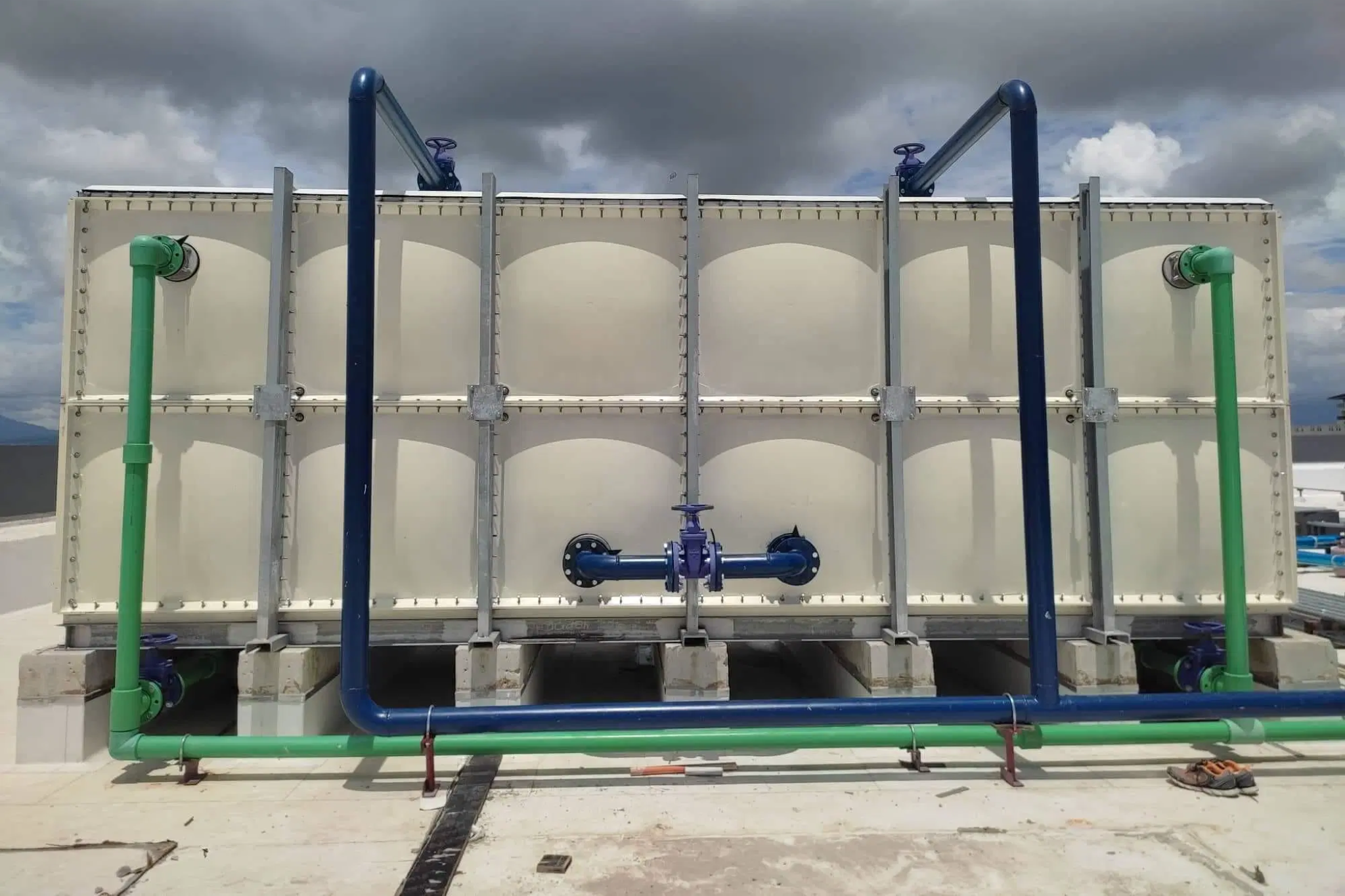
Key Features of FRP Tanks
1. Corrosion Resistance
One of the standout features of FRP tanks is their excellent corrosion resistance. Unlike metal tanks, which can corrode over time when exposed to moisture or corrosive chemicals, FRP tanks remain intact. This makes them the ideal choice for industries dealing with harsh chemicals or salty environments, such as chemical processing plants or coastal installations.
2. Lightweight but Strong
FRP tanks offer a superior strength-to-weight ratio, meaning they are much lighter than steel tanks while retaining a high level of structural strength. This makes them easier to transport and install, reducing overall costs. Despite their lightweight nature, FRP tanks can withstand significant pressure and are resistant to impact, further adding to their durability.
3. Customizable Design
One of the major advantages of FRP tanks is their flexibility in design. These tanks can be customized to meet specific requirements, including size, shape, and wall thickness. This adaptability allows businesses to optimize their storage solutions, ensuring the tanks fit perfectly into the available space and meet storage capacity needs.
4. UV and Chemical Resistance
FRP tanks are resistant to UV radiation, making them suitable for outdoor applications. They are also impervious to a wide range of chemicals, including acids, alkalis, and solvents, which enhances their longevity in industrial environments.
5. Low Maintenance
Because FRP tanks do not corrode or degrade easily, they require minimal maintenance. Unlike steel tanks that need regular painting or surface treatments to prevent rust, FRP tanks maintain their structural integrity over long periods with little to no upkeep, significantly reducing maintenance costs over the tank’s lifespan.
Benefits of Using FRP Tanks
1. Cost-Effectiveness
While the initial cost of an FRP tank may be comparable to traditional materials, its long-term cost-effectiveness is unparalleled. The minimal maintenance and extended lifespan of FRP tanks translate to fewer repair costs and reduced downtime, providing considerable savings in the long run.
2. Sustainability
FRP tanks are environmentally friendly due to their long lifespan and minimal maintenance requirements. Unlike metal tanks that may need replacement or extensive repairs after a few years, FRP tanks can last for decades with little to no environmental impact. Additionally, their resistance to chemical leaching ensures that stored materials remain uncontaminated, making them ideal for industries like food processing and water treatment.
3. Versatility
FRP tanks are suitable for a wide range of applications, including storing water, wastewater, chemicals, petroleum products, and even foodstuffs. Their adaptability makes them a go-to solution for various industries, ensuring that the tank can be tailored to meet specific storage and operational needs.
4. Easy Installation
Due to their lightweight nature, FRP tanks are much easier to transport and install than their steel counterparts. This reduces the labor costs and time involved in setting up storage systems, particularly for large-scale operations. The ability to manufacture and assemble these tanks on-site further reduces logistical challenges.
5. Durability
The combination of fiberglass and plastic resin ensures that FRP tanks can withstand harsh environmental conditions. Whether exposed to extreme heat, cold, or corrosive chemicals, FRP tanks maintain their structural integrity, making them one of the most durable storage solutions available.
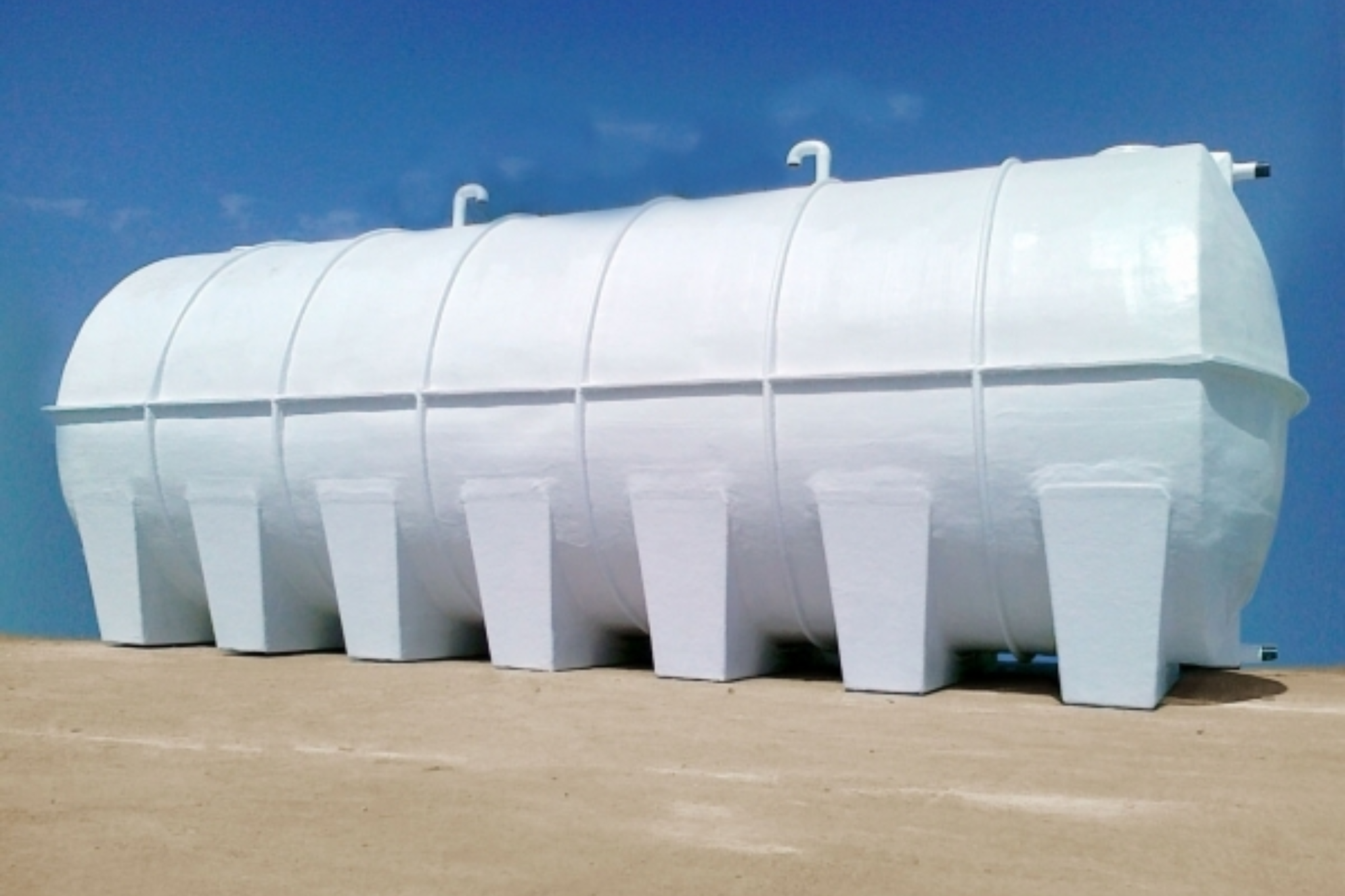
Common Applications of FRP Tanks
FRP tanks are used in various industries due to their adaptability and superior performance. Here are some of the most common applications:
1. Chemical Processing
In the chemical industry, storing corrosive and hazardous materials requires a tank that can resist deterioration. FRP tanks are ideal for holding strong acids, alkalis, solvents, and other corrosive chemicals. Their resistance to corrosion ensures the safe storage of these materials over long periods, reducing the risk of leaks and contamination.
2. Water and Wastewater Treatment
FRP tanks are widely used in municipal and industrial water and wastewater treatment plants. Their ability to withstand exposure to chemicals and contaminants, coupled with their resistance to corrosion, makes them perfect for storing treated or untreated water, sewage, and other wastewater byproducts.
3. Petroleum Storage
In the petroleum industry, FRP tanks are used to store various fuels and oils. These tanks offer a lightweight and corrosion-resistant alternative to metal tanks, providing long-term durability even when exposed to harsh environmental conditions.
4. Food and Beverage Industry
FRP tanks are suitable for storing food products and beverages, thanks to their non-corrosive and non-toxic properties. These tanks ensure that the stored materials remain uncontaminated, making them ideal for industries that require strict hygiene standards.
5. Agriculture
In agriculture, FRP tanks are used to store water, pesticides, fertilizers, and other liquids. Their durability and resistance to environmental stressors make them a reliable solution for farmers and agricultural facilities.
Limitations of FRP Tanks
While FRP tanks offer many advantages, they may not be suitable for every application. For instance, they may not be the best option for extremely high-temperature environments, as the plastic resin in the tank can degrade at elevated temperatures. Additionally, while they are strong, they may not match the strength of certain metals, which may be required in some high-pressure industrial settings.
However, for most storage applications, the advantages of FRP tanks far outweigh these limitations, making them a versatile, durable, and cost-effective solution.
How to Choose the Right FRP Tank
When selecting an FRP tank for your needs, consider the following factors:
- Type of Material to be Stored: Different chemicals and substances may require specific resin formulations for the FRP tank to offer optimal performance.
- Size and Shape: Determine the appropriate size and shape based on your storage requirements and available space.
- Location: If the tank will be used outdoors, ensure that it is designed with UV protection and weather resistance in mind.
- Temperature: Consider the operating temperature of your facility, as some FRP tanks may have limitations regarding temperature tolerance.
Conclusion
FRP tanks provide a robust, long-lasting, and cost-effective solution for various storage needs. Their ability to resist corrosion, chemical exposure, and environmental wear make them a preferred choice for industries ranging from chemical processing to wastewater treatment. With minimal maintenance requirements and customizable design options, FRP tanks are the ideal storage solution for businesses looking for durability and versatility.
By understanding the benefits and applications of FRP tanks, you can make an informed decision that ensures your storage systems meet the highest standards of performance and reliability.

